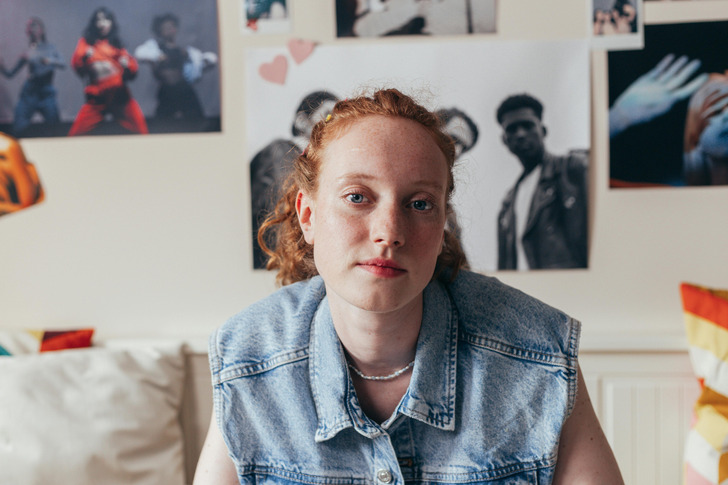Oh, please. I understand the loss of a child, (I lost mine forty years ago) but have you lost your mind? Telling a CHILD to sleep in the kitchen? You blew a really good chance at easing your own grief and helping a child with no choice in the matter. Your husband might have over reacted, but he could have lost HIS daughter because you "Don't want to share". Shame on you.
I Refuse to Let My Stepdaughter Use My Late Daughter’s Room—She’ll Sleep in the Kitchen
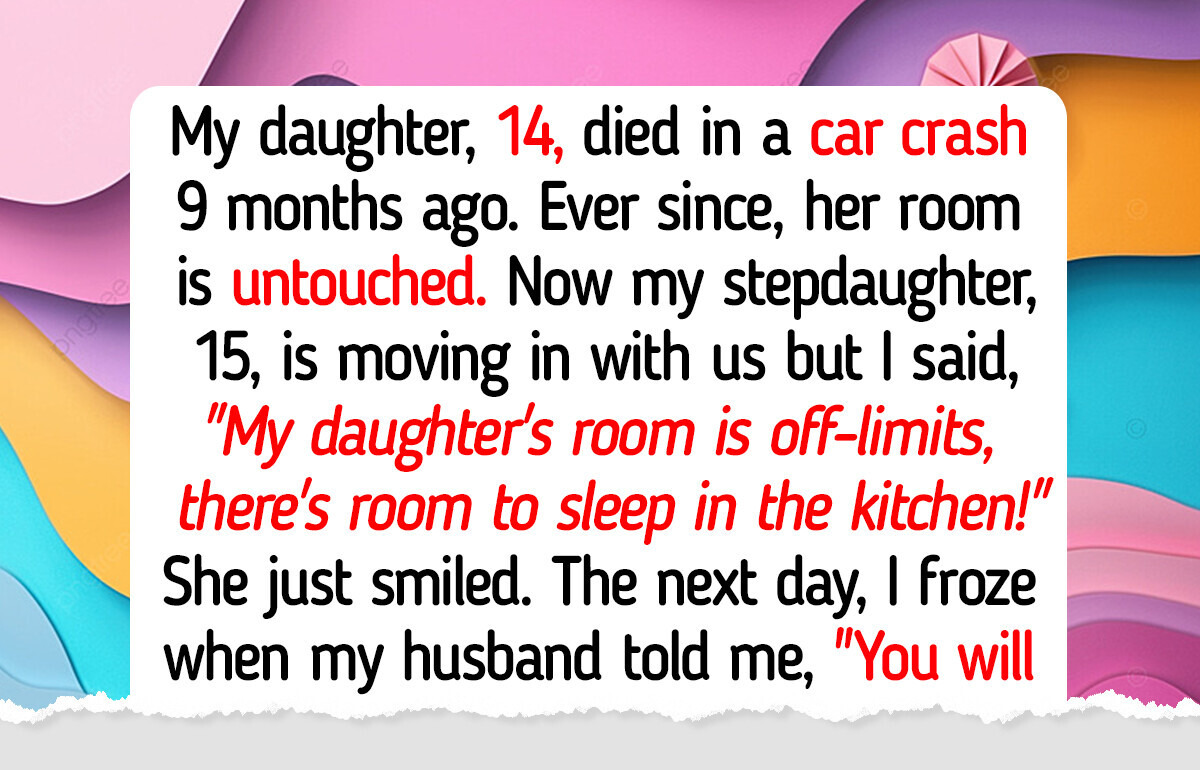
Motherhood is filled with love, sacrifice, and a deep emotional bond that’s hard to put into words. When a mother loses a child, that bond doesn’t disappear — it lingers in memories, belongings, and the spaces once filled with laughter. Grief can take many shapes, and healing looks different for everyone. But when life forces big changes too soon, it can feel like the world is asking a mother to let go before she’s ready.
Recently, a reader sent us a letter about facing such a painful situation in the middle of her journey through loss.
Marianne’s letter:
Dear Bright Side,
My daughter, who was 16, died in a car crash 9 months ago. Since then, her room has remained untouched. Everything remains exactly as she left it — her clothes, her bed, her belongings. I often go in there to cry and feel close to her. It’s the only place where I still feel her presence.
Now, my 15-year-old stepdaughter is moving in with us because her mother has to relocate to another state. But our house has only two bedrooms: the master bedroom and my late daughter’s room.
There’s a small sitting area in the kitchen where a bed can fit, so I said, “My daughter’s room is off-limits. There’s space to sleep in the kitchen.”
My husband was quiet and my stepdaughter just smiled. The next day, I got home and froze when I saw my daughter’s room had been completely transformed. All her clothes and belongings were moved into a tiny closet to make room for my stepdaughter’s things.
My stepdaughter and my husband had hung up her clothes in the wardrobe, removed my daughter’s bedspread, and even rearranged the furniture. Every trace of my child had vanished.
I was heartbroken — and then a wave of anger hit me. I yelled at my husband, but he turned to me and said, “You will never make my daughter feel unwelcome in her own father’s house!”
I didn’t know how to respond. Right now, my own husband feels like a stranger. I can’t believe he could be so cold toward my daughter — just because she wasn’t his.
I am even considering leaving him. Do you have any advice for me?
—Marianne

Marianne, thank you for opening up about something so raw and personal. What you’re facing isn’t just a disagreement about living arrangements — it’s a profound breach of trust, the erasure of your daughter’s memory, and a painful collision between grief and family loyalty.
Below are 4 distinct paths you might consider as you navigate this deeply complex moment.
Create a “Memorial Sanctuary” outside the bedroom.
If you’re not ready to give up your daughter’s room, and that space is your only emotional anchor, consider setting up a small memorial corner in another part of the house — perhaps the master bedroom or a quiet nook — where her most treasured items, photos, or her scent (like a shirt or pillow) can remain untouched.
This gives you a new space to feel her presence without losing everything all at once. It’s not about “moving on”; it’s about protecting a piece of your connection in a shifting home dynamic.
Confront the breach of trust head-on — in writing if necessary.
Your husband didn’t just rearrange a room — he overrode your grief and made a unilateral decision about something sacred. If you’re finding it hard to talk face-to-face, write him a letter explaining exactly what that room meant to you, what it symbolized, and why this feels like a betrayal.
Don’t focus on the logistics — focus on the emotional rupture. This isn’t just about furniture; it’s about how you were excluded from a decision that erased your child’s presence.
Set boundaries around blended family integration.
This situation is not just about grief — it’s also about control and lack of sensitivity in blending your families. You can’t parent together if your pain is bulldozed. Consider proposing a structured discussion (with or without a family therapist) where you, your husband, and — if appropriate — your stepdaughter discuss how shared spaces will be handled going forward.
Be clear: honoring your late daughter’s memory is not in conflict with welcoming your stepdaughter. But boundaries must be respected on both sides.
Ask yourself what future you can emotionally live with.
You mentioned considering leaving. That’s not dramatic — it’s honest. Ask yourself: Can you imagine staying in a marriage where your grief is dismissed, your daughter’s memory displaced, and your voice overruled? If the answer is no, you’re not “choosing the past over the present.” You’re choosing to protect your wholeness.
Grief and love aren’t either/or. But being unseen by your partner in your most vulnerable moment is not a foundation you’re obligated to stand on.
Here’s another story that highlights the tension often found in blended families. Cynthia made the difficult decision to exclude her beloved stepmom, the woman who raised her, from her wedding to keep her biological mother happy. Read her full story and tell us: would you have made the same choice?
Comments
Related Reads
My Vegan Daughter Threw Out All My Groceries—So I Sent Her the Bill

I Refuse to Walk My Daughter Down the Aisle With the Man Who Ruined Our Family

I Gave Up My 2-Month-Old Baby for Adoption Because I Chose My Own Happiness

I Refused to Talk to My Parents After They Chose My Ex-Wife Over Me

I Refused to Pay for Our Valentine’s Dinner—Then I Learned the Heartbreaking Truth

10 Moments That Show Kindness Doing the Heavy Lifting
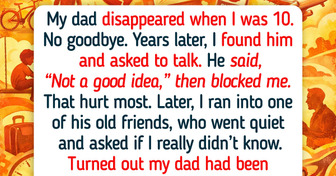
14 Stories From Cleaners That Are Wilder Than Any Movie Script
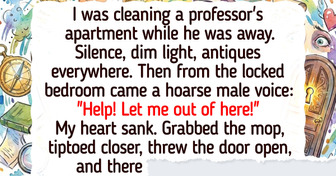
10 Hospital Workers Who Prove Kind Heart Is a Powerful Medicine

15 Stories That Show Kindness Is a Quiet Language the World Needs
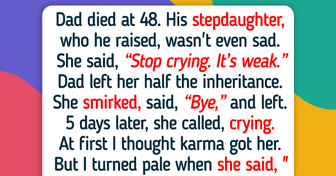
12 Small Acts of Kindness That Quietly Changed Lives
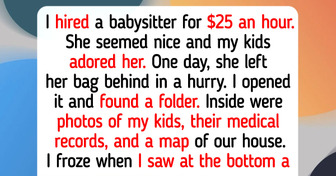
My Family Excluded My Girlfriend From Christmas Because We’re Not Married

I Forbade My Stepdaughter From Eating Meat — My House, My Rules

